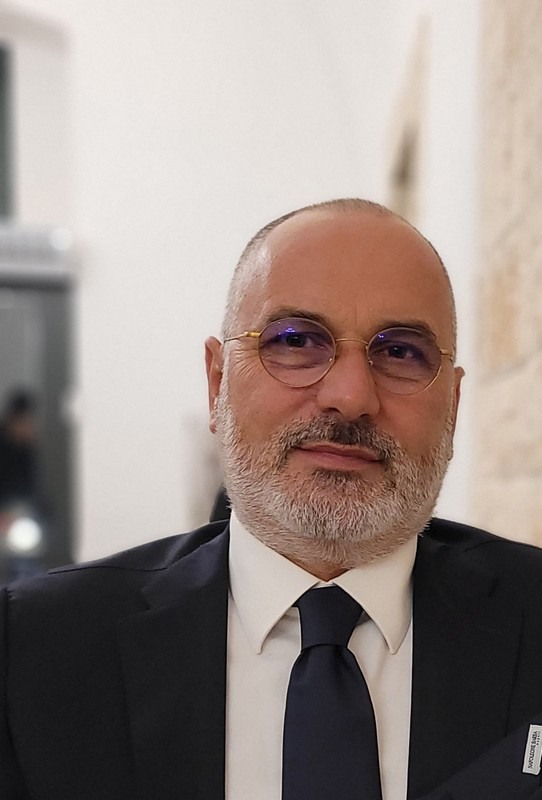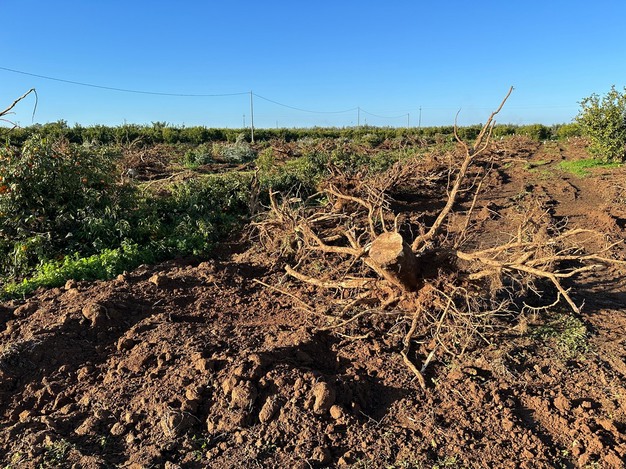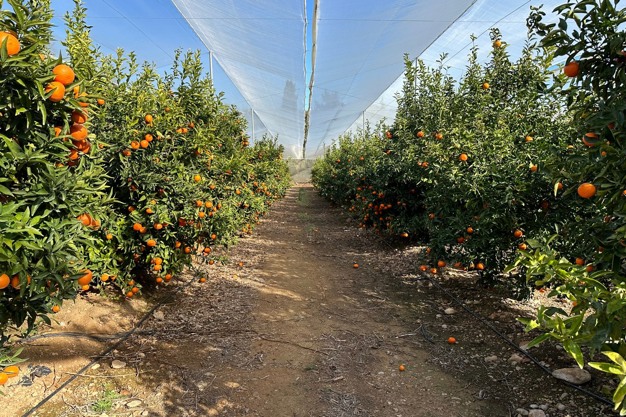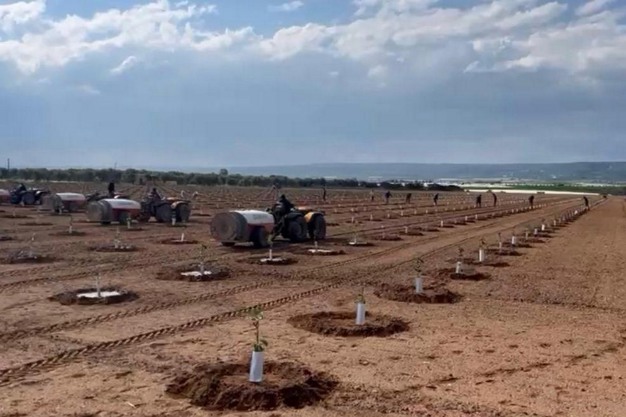 "Unfortunately, the sought-after impetus producers have been hoping for when it comes to medium varieties has not happened," reports Francesco Paolo Gallo, CEO of Comercial Gallo S.r.l. and president of Club Linbo, as he makes an assessment on the current state of the citrus fruit sector.
"Unfortunately, the sought-after impetus producers have been hoping for when it comes to medium varieties has not happened," reports Francesco Paolo Gallo, CEO of Comercial Gallo S.r.l. and president of Club Linbo, as he makes an assessment on the current state of the citrus fruit sector.
The production regime has in fact remained unvaried during the 2023/24 citrus fruit campaign in the Ionian area, despite the water and phytosanitary problems that compromised product quality.
The produce supplied between December and mid-January is destined to consumers used to dealing with a low-shelf life and that does not cost over €1/kg. This means the production price does not exceed €0.30/kg for fruits with a diameter over 55 mm suitable for the fresh market.
"This is the main problem. Out of 100 kg of produce from clones of traditional clementines, usually only 50% presents the characteristics required by the market, bar a few very good producers who still manage to achieve higher volumes with characteristics suitable for commercialization with huge effort."
 Recent uprootings of citrus fruit groves.
Recent uprootings of citrus fruit groves.
The market changes completely already in early January: consumers abandon the standard produce (as they are tired of it) and choose late premium lines, well-aware that they have to pay more for a longer shelf-life that reduces waste. "We have been working precisely on this segment in order to develop new clones deriving from clementines or tangerines capable of livening up the market. In Italy, we have the Leanri project involving Tang Gold, Nadorcott and Orri. These varieties cover a large window between January and April, thereby prolonging the supply."
 Leanri grove.
Leanri grove.
Gallo believes it is necessary to set up varietal re-conversion projects based on clones of common clementines or other derived clones with a better performance, more stable and homogeneous. "These are our objectives when it comes to medium-term varietal research. We are about to introduce a non multi-bud early variety, as well as clementine clones for the November window, to then leave room to standard varieties. These introductions should give a new lease of life to the income of companies. When we approach new varieties, we always try to select those with the best performance, that do not need a lot of chemical treatments despite the increasing difficulties caused by climate change and the elimination of many defense instruments. We also pay a lot of attention to identify the sale limits of licenses, so as not to produce more than what demanded and maintain values profitable for producers. I am confident about the future of citrus fruit companies, but projects are necessary based on varietal renewal. If the regional authorities were more attentive and informed about this issue and gave a concrete hand to companies, we would be reaching our objectives much quicker."
Out of 10 companies investing in innovation, 7 come from other sectors (mainly table grapes. Francesco Gallo stresses that "only three companies already produce citrus fruit and are able to afford innovative investments. The remaining part does not have the funds to make the investments necessary to lift the turnover and margin. We have reached a point of no return."
 New Leanri groves.
New Leanri groves.
"I believe the institutions (both the State and the Regions) must keep up to date as regards the new varieties. They are still issuing Rural Development Programs featuring varietal charts that are obsolete, dating back to 30 years ago, and that therefore do not include royalties on some promising citrus fruit cultivars among the eligible costs, when such costs can reach 70% of the total investment for the renewal. This detachment from reality of the public administration is unacceptable and extremely dangerous for the entire Italian citrus fruit sector. We risk collapsing and making businesses no longer competitive. Growers are dignified and proud by nature, they do not want help. However, they are currently asking for help to give a future to the new generations and make citrus fruit cultivation profitable and no longer just a passion. It is not possible to feed a family with a passion for 'gardening' alone."
For more information:![]() Comercial Gallo Srl
Comercial Gallo Srl
Sp 103 c.da Furnoli
74016 Massafra (Taranto)
(+39) 336 828235
[email protected]
comercialgallo.com
